Annapolis, MD; August 8, 2022—The Governing Board of the Entomological Society of America (ESA) has elected nine new Fellows of the Society for 2022. Election as a Fellow of ESA acknowledges outstanding contributions to entomology in research, teaching, extension and outreach, administration, or the military.
The entomologists named 2022 Fellows of the Entomological Society of America are:
- Whitney Cranshaw, Colorado State University
- Claudio Gratton, University of Wisconsin, Madison
- Nannan Liu, Auburn University
- Richard Merritt, Michigan State University
- David Onstad, Corteva Agriscience
- Sujaya Rao, University of Minnesota
- David Shapiro-Ilan, USDA Agricultural Research Service
- John D. Stark, Washington State University
- Jeffery K. Tomberlin, Texas A&M University
See more details on criteria for Fellow selection, as well as a full list of ESA Fellows.
This year's honorees will be recognized during the 2022 Joint Annual Meeting of the Entomological Societies of America, Canada, and British Columbia, November 13-16, in Vancouver.
2022 Fellows of the Entomological Society of America
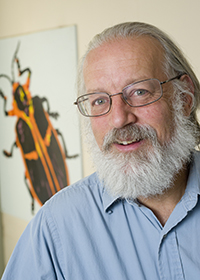 Dr. Whitney Cranshaw, emeritus professor with the Department of Agricultural Biology at Colorado State University (CSU), was elected Fellow in 2022. During his career, he pursued broad interests in advancing IPM practices, with a focus on arthropod issues of importance in the Rocky Mountain region. His work in advancing entomology in the area of landscape/home horticulture is perhaps most widely recognized.
Dr. Whitney Cranshaw, emeritus professor with the Department of Agricultural Biology at Colorado State University (CSU), was elected Fellow in 2022. During his career, he pursued broad interests in advancing IPM practices, with a focus on arthropod issues of importance in the Rocky Mountain region. His work in advancing entomology in the area of landscape/home horticulture is perhaps most widely recognized.
Cranshaw was born in Ancon, Canal Zone, in 1952 but grew up in Wellesley, Massachusetts, where he spent most weekends exploring fields and ponds for reptiles, amphibians, and insects. After high school he worked at a medical research laboratory, then took off in June 1971 to ride his bicycle from Wellesley to San Francisco, spending the end of the summer at the Berkeley Ecology Action Commune. He then entered Hampshire College, during which time his interest in entomology was rekindled, fueled by a fascinating introductory entomology course taught by Michael Peters and exposure to possibilities he saw in IPM thought emerging at that time. Employment at the UMass Insect Ecology Lab with Pedro Barbosa, and assisting John Capinera, were immense influences on his career. He then pursued M.S. and Ph.D. degrees with Ted Radcliffe at the University of Minnesota, where his dedication to finding IPM solutions was solidified in trying to address solutions to a variety of vegetable crop problems.
In 1983, Cranshaw began assignment at CSU, with primary responsibilities in horticultural entomology. This involved a full program in extension, teaching, and research. During his career, he took on a challenge to "improve the entomological literacy of the people of Colorado," always with an IPM foundation, and he found useful the concurrent responsibilities of extension/teaching/research. Most research programs devolved from bottom-up contacts through extension programming. Extension programs synergized Cranshaw's teaching, and vice versa.
In addition to teaching several on-campus courses, Cranshaw was regularly invited to speak on his work 40 to 50 times per year, both in-state and nationally. He also wrote prolifically on topics including development of butterfly gardening concepts (1985); identification of new insect/plant pathogen associations (e.g., thousand cankers of Juglans); issues related to regional household insects; description of insects affecting regional insects of vegetable, yards/homes; and, most recently, the arthropod fauna of hemp. Among books he published are Bugs Rule: An Introduction to the World of Insects (co-written by Rick Redak), developed to support a highly successful course he developed oriented to nonscience majors, and Garden Insects of North America (2nd Edition with David Shetlar), which is a standard diagnostic resource used throughout the United States.
Other contributions include a long commitment to the ESA Standing Committee on Common Names, including five terms as chair; continuous provision of open-source images (more than 6,400) related to insects and agriculture through Bugwood.Org; and establishment (with Mike Merchant) and maintenance of the OrnaEnt listserv, a communications media for entomologists with interests in landscape entomology. He is also particularly proud to have had all 37 of his graduate student advisees successfully complete their graduate programs.
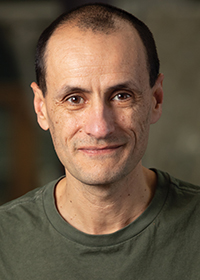 Dr. Claudio Gratton, a professor in the Department of Entomology at the University of Wisconsin, Madison (UW), was elected Fellow in 2022. He is internationally known for his research on the landscape ecology and conservation of beneficial insects in terrestrial landscapes.
Dr. Claudio Gratton, a professor in the Department of Entomology at the University of Wisconsin, Madison (UW), was elected Fellow in 2022. He is internationally known for his research on the landscape ecology and conservation of beneficial insects in terrestrial landscapes.
Gratton was born outside of Rome, Italy, in 1970, and his family immigrated to central Illinois in 1978. He attended the University of Illinois at Urbana-Champaign (UIUC) for his undergraduate studies, where he obtained a B.S. in honors biology. Inspired by his entomology professors at Illinois, he moved to the University of California, Berkeley, in 1991 to enter the entomology graduate program. There he studied the evolutionary ecology and host-specialization of herbivorous insects and obtained his Ph.D. in 1997. Gratton moved to the East Coast for postdoctoral work with Dr. Bob Denno at the University of Maryland, where he shifted his focus to arthropod food webs and predator-prey interactions in salt-marsh ecosystems. In 2003, he started a faculty position in the Department of Entomology at the University of Wisconsin. At UW, he is also an affiliate faculty in the Department of Integrative Biology and the Nelson Institute for Environmental Studies.
Gratton's research on the ecology of arthropods expanded to explore the relationship between agricultural landscapes and insect conservation. Using a range of approaches, including landscape experiments and eco-informatics, his group showed that "simplification" of landscapes in ways that increase the dominance of agricultural land and reduce the diversity of crop and non-crop habitats generally have negative consequences for beneficial insects such as bees and predatory insects. Dispersal from non-crop habitats is often a mechanism through which beneficial insects influence pollination or pest suppression within agricultural fields. The ecology of linkages between adjacent habitats is a broader theme in Gratton's research. He pursued these ideas through work in northern Iceland, where he and his team spent more than 15 years exploring how mass midge emergences from lakes influence soils, plants, and arthropod food webs in the neighboring terrestrial systems. Gratton's work is highly interdisciplinary, as seen in collaborations with colleagues in soils, plant ecology, ecosystem ecology, limnology, and spatial ecology. His interests in the application of science to inform agroecological landscape transformations expanded to include multistakeholder participatory approaches to land-use planning through the development of on models, decision-support systems, and place-based research.
Gratton's scientific work is represented in more than 145 peer-reviewed papers across more than 60 different journals. Gratton has helped train a new generation of interdisciplinary scholars by mentoring seven M.S. students, 10 Ph.D. students, and 15 postdoctoral scientists. At UW, he was awarded a Kellett professorship (2021), honored with Pound (2012) and Romnes (2012) Research Awards, and received a postdoctoral mentoring award (2018). He was honored with a Distinguished Alumnus Lecture at UIUC (2019). Gratton was an Aldo Leopold Leadership Fellow at the Stanford/Woods Institute (2013).
Gratton and his wife, Brenda, are the parents of Elena (a budding entomologist) and Paolo. His less entomological activities include baking bread and pizza, biking down mountainsides, and camping with friends.
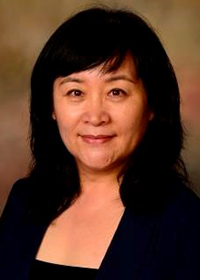 Dr. Nannan Liu, professor in the Department of Entomology and Plant Pathology, Auburn University, was elected ESA Fellow in 2022. She is nationally and internationally recognized for her research on insect molecular toxicology and insect physiology relating to the development of insecticide resistance in insects.
Dr. Nannan Liu, professor in the Department of Entomology and Plant Pathology, Auburn University, was elected ESA Fellow in 2022. She is nationally and internationally recognized for her research on insect molecular toxicology and insect physiology relating to the development of insecticide resistance in insects.
Liu was born in Beijing, China. She earned her B.S. in entomology from China Agricultural University in 1982. She received her Ph.D. degree in entomology from Cornell University in 1995, where her research, under the supervision of Dr. Jeff Scott, focused on the molecular genetics of insecticide resistance in house flies. After graduation, she was awarded an NIH postdoctoral fellowship to investigate the molecular mechanisms involved in heme oxygenase gene regulation in rats at the University of Rochester's School of Medicine and Dentistry (1995-1996). As a postdoctoral research associate at Cornell University (1996-1997), her emphasis shifted to the molecular regulation of P450 gene expression and regulation in insecticide resistance of house flies.
Liu joined the faculty of Auburn University in 1997 and is now a full professor in the Department of Entomology and Plant Pathology. She served as the department chair of entomology and plant pathology at Auburn University from 2014 to 2020. Her research, which has benefitted from strong support from multiple highly competitive sources such as NIH and USDA, as well as diverse sources such as commodity organizations and state and university funding bodies, focuses on molecular toxicology/physiology relating to the development of insecticide resistance in insects, especially mosquitoes and house flies. Liu has published 115 peer-reviewed research articles (h-index 48), six book chapters, two genome database publications, and seven proceedings. Liu has served as the sole editor for the book Recent Advances in Insect Physiology, Toxicology, and Molecular Biology. Liu was honored to have been invited to contribute a review chapter entitled "Insecticide Resistance in Mosquitoes: Impact, Mechanisms, and Research Directions" in the Annual Review of Entomology. Published in 2015, this review has garnered 662 citations as of 2022. Her research accomplishments have been widely recognized, including most recently the ESA Southeastern Branch Recognition Award in Insect Physiology, Biochemistry, and Toxicology (2022).
During the course of her career, Liu has served as major advisor for 23 graduate students (17 Ph.D. and six M.S. students) and supervised 15 postdoctoral fellows and visiting scientists. Many are now successful researchers/professors in molecular biology, physiology, and toxicology. Liu has also served as the coach for Auburn University's Graduate Student Entomology Game since 2018. Her team was awarded first place in the SEB-ESA Entomology Games in both 2021 and 2022 and placed first in ESA's 2020 National Entomology Games Competition.
Liu has served ESA and SEB-ESA in several roles over the years, including as vice president and president of the Physiology, Biochemistry, and Toxicology Section of ESA (2014-2016) and as program chair (2009) and co-chair of the Student Award Committee of SEB-ESA (2021 to present).
Liu married her college sweetheart, Dr. Lee Zhang, and they have a son, Anthony, and a daughter, Annie.
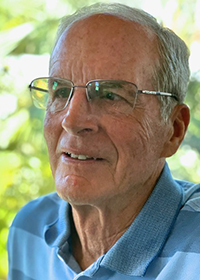 Dr. Richard Merritt, University Distinguished Professor Emeritus at Michigan State University (MSU), was elected as Fellow in 2022. Merritt's research over his career involved population dynamics, feeding ecology, and influence of environmental factors on immature aquatic insects. Major efforts were directed toward the following projects: 1) filter-feeding ecology of aquatic insects (mainly black flies and mosquitoes); 2) forensic entomology, primarily determining the postmortem interval in death investigations (Diptera); 3) leaf litter processing and biomonitoring in lotic ecosystems; 4) effects of marine-derived nutrients on aquatic insects in Alaska; and 5) ecology of a neglected infectious tropical disease (Buruli Ulcer) in Africa involving insects.
Dr. Richard Merritt, University Distinguished Professor Emeritus at Michigan State University (MSU), was elected as Fellow in 2022. Merritt's research over his career involved population dynamics, feeding ecology, and influence of environmental factors on immature aquatic insects. Major efforts were directed toward the following projects: 1) filter-feeding ecology of aquatic insects (mainly black flies and mosquitoes); 2) forensic entomology, primarily determining the postmortem interval in death investigations (Diptera); 3) leaf litter processing and biomonitoring in lotic ecosystems; 4) effects of marine-derived nutrients on aquatic insects in Alaska; and 5) ecology of a neglected infectious tropical disease (Buruli Ulcer) in Africa involving insects.
Merritt was born in San Francisco, California, and grew up in the Bay Area. He received his B.S. in biology at San Jose State University, then obtained his M.S. in entomology at Washington State University under M.T. James. He accepted an NIH traineeship at the University of California, Berkeley, and completed his Ph.D. in medical/veterinary entomology under J.R. Anderson. He took an assistant professor position at MSU in 1974.
Merritt was department chair of entomology, MSU, from 2002 to 2008. He is a Diplomate of the American Board of Forensic Entomology and a Fellow of the American Academy of Forensic Sciences (AAFS). He has published more than 250 scientific articles and co-edited five editions of the textbook An Introduction to the Aquatic Insects of North America, as well as a book titled Black Flies: Ecology, Population Management, and Annotated World List. He has served as associate editor for three journals, The American Midland Naturalist, Freshwater Invertebrate Biology, and Journal of Medical Entomology. Merritt taught two main courses, one in aquatic entomology and the other in forensic entomology, as well as courses in biomonitoring of streams and rivers and insect ecology on occasion. He received the MSU Distinguished Faculty Award in 2004 and received a Fulbright Scholar Award in 1986. He spent a sabbatical in London, England, where he was made an Honorary Research Fellow at University College, London. He received the Award of Excellence from the Society of Freshwater Science in 2007 and was made an Inaugural SFS Honorary Fellow in 2017. In 2011, he was awarded the title of MSU University Distinguished Professor. He is a Fellow of AAFS and received the Lifetime Achievement Award in 2017. He was recently (2021) recognized as one of the Legends in Entomology by ESA. He mentored more than 40 graduate students and three postdocs. He is still an avid fisherman and racquetball player.
He is married to his wife, Pamela, with whom he has two sons and three granddaughters. His son, Brett, obtained his Ph.D. at MSU in science education and teaches at the American School in Switzerland with his wife, Kelly. His son, Scott, who along with his wife, Hailey, lives in Atlanta, is head of automation for Northwest Mutual Life Insurance Company.
Dr. David Onstad, research scientist at Corteva Agriscience, was elected Fellow in 2022. He was recognized for his expertise in economics of IPM, insect epizootiology, ecological modeling of insect populations, and insect resistance management.
Onstad was born in 1957 and raised in Sacramento, California. He earned a B.Sc. degree in biology at California State University, Sacramento. From 1979 to 1985, he attended Cornell University in Ithaca, New York, where he earned an M.Sc. degree in environmental engineering and a Ph.D. in entomology. In 1981, he carried out research concerning optimization of insect and plant-disease management with a fellowship at Wageningen University in The Netherlands. He became a professor in the College of Agriculture at the University of Illinois, Urbana-Champaign, in 1985 and worked there until retirement in 2011. His second career began in 2011 as a senior research scientist at DuPont Pioneer in Wilmington, Delaware, where his focus was on insect resistance management and predictions based on mathematical modeling. Dupont Pioneer became part of Corteva Agriscience in 2018. Onstad's third career will be determined in 2023.
Onstad has modeled population dynamics and genetics of more than 30 species of insects and insect pathogens. Most of these are pests, but he has also modeled biological control agents and honey bees. To help with decision making by farmers and government agencies, Onstad has also included cost-benefit analyses in some of these models. In 2019, he published a book on economics of integrated pest management of insects to provide an overview of the economic methods and the value of IPM. Many of Onstad's models have also been used to predict the evolution of insects targeted by insecticides and insecticidal crops (host-plant resistance). The third edition of his book on insect resistance management will be published in 2022. In the 1990s, Onstad developed models of epidemics of pathogens in insect populations and created the Ecological Database of the World's Insect Pathogens, which still exists on the internet.
Onstad has served ESA since 1992. Most recently, he served as president of the Plant-Insect Ecosystems Section in 2021. Before the implementation of the modern editor-in-chief positions for the journals, Onstad was a co-editor and subject editor of Environmental Entomology from 2000 to 2004. He later returned to the journal to be subject editor for another 10 years, from 2010 to 2019. In 1997, Onstad was a cofounder of ESA's Subsection on Quantitative Ecology. He then served as secretary, chair-elect, and chair of the subsection from 1998 to 2000. He helped to write the original and revised ESA Position Statement on Resistance Management for Genetically Modified Crops as a member of committees in 2015 and 2020.
Onstad's wife, Dawn Dockter, is an entomologist who has collaborated with him on a few nonagricultural projects regarding insect pathology and ecology. Their daughters, Nora and Emma, are engineers.
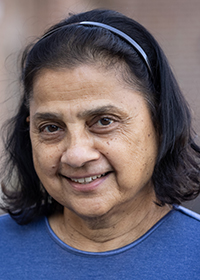 Dr. Sujaya Rao, professor and department head for entomology at the University of Minnesota (UMN), was elected ESA Fellow in 2022. Her career has spanned research, teaching, extension, and administration at universities and leadership for ESA. Rao has also led unique graduate and undergraduate education programs that have enhanced the profile of entomology.
Dr. Sujaya Rao, professor and department head for entomology at the University of Minnesota (UMN), was elected ESA Fellow in 2022. Her career has spanned research, teaching, extension, and administration at universities and leadership for ESA. Rao has also led unique graduate and undergraduate education programs that have enhanced the profile of entomology.
A native of India, Rao's interest in entomology was sparked during her B.S. and M.S. degree programs in zoology at the University of Delhi, India. She traveled to the United States to pursue a Ph.D. degree in entomology at UMN. Her thesis and subsequent postdoctoral research at the University of Delaware and the University of California at Berkeley (UC) were focused on the chemical ecology of plant-pest-parasitoid interactions and on biological control. She was hired as an extension advisor for UC Cooperative Extension and then as assistant professor at Oregon State University (OSU), where she advanced to full professor. As an OSU faculty member, her research covered integrated pest management and pollination by native bees. She then moved to her alma mater, UMN, to serve as the entomology department head.
Rao was inspired to enhance education through experiential learning when she attended a workshop on interactive learning as a graduate student at UMN. In her first effort at implementation, she led an NSF GK-12 program at OSU that provided graduate and undergraduate students with a unique experience in developing and implementing inquiry-based lessons for K-12 classrooms that creatively integrated entomology with other disciplines. This year-long experience inspired participants to later pursue careers involving teaching and outreach. A subsequent NSF REU (Research Opportunities for Undergraduates) summer research program on pollination biology at OSU drew participants nationwide and empowered them with experiences for conducting independent research, nationally and internationally, for degrees at their respective institutions. In Rao's unique Partners in Nature program, sponsored by Toshiba America Foundation, rural middle-school students gained an "entomologist's experience" by engaging in pollination research in their schools—asking questions and collecting and organizing data—and presenting results at a campus conference. Impacts of these programs led to Rao's selection as director for undergraduate research at OSU, in which role she engaged under-represented (minority, freshman, first-generation, non-STEM major) students across all disciplines in research and creative activities. At UMN, Rao engaged her faculty in reimagining undergraduate entomology education, which drew students from majors typically under-represented in entomology courses, such as aerospace engineering, business management, design, kinesiology, and nursing; several students later enrolled in the rapidly growing insect science minor.
Rao has received $1.8 million for her education activities. She has shared her programs and their outcomes through peer-reviewed publications, presentations, teaching symposia, and education workshops. Her teaching achievements were recognized with seven awards, including the ESA Distinguished Achievement in Teaching Award, two OSU Team Awards, and the UMN Hodson Alumnus Award.
After many years of addressing insect issues as pests and pollinators in food crops, as a professional "hobby" Rao is now promoting insects as food sources for humans—entomophagy!
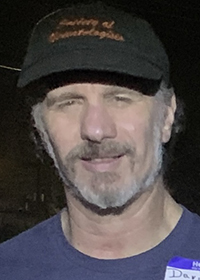 Dr. David Shapiro-Ilan, research leader and supervisory research entomologist at USDA-ARS, Southeastern Fruit and Tree Nut Research Station in Byron, Georgia, was elected Fellow in 2022. He is internationally known for his work on invertebrate pathology and microbial control; he has focused his research primarily on entomopathogenic nematodes but has also studied entomopathogenic fungi extensively, as well as other pathogen groups.
Dr. David Shapiro-Ilan, research leader and supervisory research entomologist at USDA-ARS, Southeastern Fruit and Tree Nut Research Station in Byron, Georgia, was elected Fellow in 2022. He is internationally known for his work on invertebrate pathology and microbial control; he has focused his research primarily on entomopathogenic nematodes but has also studied entomopathogenic fungi extensively, as well as other pathogen groups.
Shapiro-Ilan was born in New York City and grew up in the Bronx. He received a B.S. in biology from the University of Michigan-Ann Arbor (1984) and served in the Peace Corps in Niger, West Africa, conducting crop protection and rural development projects (1985-1987). Shapiro-Ilan obtained an M.S. in entomology from Louisiana State University (1989) studying under Jim Fuxa. In 1990, Shapiro-Ilan was a farm apprentice on a diverse organic farm near Viroqua, Wisconsin. He earned his Ph.D. in entomology from Iowa State University (1994) studying under Les Lewis. Shapiro-Ilan was a Fulbright postdoctoral scholar at the Volcani Center in Israel (1994-1996) in the lab of Itamar Glazer. Subsequently, he spent 2.5 years as a research insect pathologist with Integrated BioControl Systems Inc., and one year as an assistant in entomology at the University of Florida Citrus Research and Education Center in Clay McCoy's lab. He joined USDA-ARS as a research entomologist in 2000 and became research leader in 2019.
Shapiro-Ilan's research has focused on fundamental and applied invertebrate pathology and microbial control. His work resulted in improved methods of strain development, production, formulation, and application of microbial control agents. Improved entomopathogenic nematode production methods include mechanization of in vivo approaches and developing technology to genetically stabilize entomopathogenic nematode strains. Strain discovery and applied entomopathogenic nematode field research has resulted in grower adoption in several commodities such as citrus, peach, and pecan. Formulation work has focused on protecting microbials from UV radiation. Basic research by Shapiro-Ilan has focused on foraging behavior of entomopathogenic nematodes and led to the discovery that nematodes move in groups like a pack of wolves. With university and industry partners, Shapiro-Ilan et al. are leveraging entomopathogenic nematode communication systems (pheromones) to enhance biocontrol efficacy. Also with industry partners, Shapiro-Ilan conducted the first biocontrol experiment in space by sending the entomopathogenic nematodes to the International Space Station.
Shapiro-Ilan has published 215 peer-reviewed journal articles plus 24 book chapters and more than 60 trade journal/extension articles. He has co-edited four books and is inventor on seven patents. Selected awards include Fellow of the Society of Nematologists, EEO/Civil Rights, Excellence in IPM (ESA Southeastern Branch), and more than $22 million as principal investigator or co-principal investigator on competitive grants. Shapiro-Ilan is an adjunct faculty member with Fort Valley State University and the University of Georgia. Selected professional service has included scientific quality review officer (USDA-ARS), subject editor for the Journal of Economic Entomology, and editor-in-chief for the Journal of Nematology; he currently serves as editor-in-chief for the Journal of Invertebrate Pathology.
Shapiro-Ilan's immediate family include wife Laura, sons Amitai and Teva, and Teva's wife, Rachel. Hobbies include camping and kayaking.
 Dr. John D. Stark is a professor of entomology and environmental toxicology at the Washington State University, Puyallup Research and Extension Center. He is also the director of the Washington Stormwater Center.
Dr. John D. Stark is a professor of entomology and environmental toxicology at the Washington State University, Puyallup Research and Extension Center. He is also the director of the Washington Stormwater Center.
Stark grew up in New York and attended Syracuse University and the SUNY Syracuse College of Environmental Science and Forestry at the same time. He received a B.S. degree in biology from Syracuse and a B.S. degree in forestry from SUNY. He then attended Louisiana State University, where he was awarded an M.S. degree in entomology. He received his Ph.D. from the University of Hawaii in entomology and pesticide toxicology.
After graduating from the University of Hawaii, he worked with Dr. Roger Vargas (deceased), USDA-ARS, in Hawaii studying the ecology and control of Tephritid fruit flies. Three years later, he was hired by the Entomology Department of Washington State University (WSU) as an assistant professor of entomology/environmental toxicology.
At WSU, Stark studied the effects of pesticides on nontarget organisms. In reviewing the way that EPA develops ecological risk assessments, using surrogate species in place of endangered species, he found that the risk assessment process for pesticides had a major flaw. There is an assumption that toxicity data developed for one surrogate species can be used to protect all other species in a group, such as fish. He discovered that this is not correct. Variable life history traits among species greatly influence a species' susceptibility to stressors, including toxicants. For example, if there are two populations of 100 individuals, one of rats and the other of elephants, and each population is exposed to a stressor that reduces each population by 50%, the recovery time of each population back to the original 100 individuals is not the same. The rats obviously recover faster than the elephants, indicating that equal negative impacts affect species differently. Based on this concept, Stark developed a new risk assessment approach that relies on the use of demography and population modeling to evaluate the effects of pollutants on populations. His work was published in Proceedings of the National Academy of Sciences, and from it, he was invited to submit a review article in Annual Review of Entomology. Stark also published a book on demographic and modeling approaches to protect endangered species.
Additionally, Stark works on the effects of pesticides and chemicals found in stormwater runoff on Pacific salmon. He also works on evaluating the effects of herbicides on endangered butterflies in California.
Stark was invited to give briefings to Congress on pollution issues associated with salmon and stormwater in 2014 and 2016.
Stark received the Recognition Award in Insect Physiology, Biochemistry, and Toxicology from the Pacific Branch of ESA in 2001 and 2011 and the C.W. Woodworth Award in 2005. The WSU College of Human and Natural Resources Sciences awarded him the Excellence in Research Award in 2010. Stark has published more than 140 scientific papers and numerous book chapters, and has given over 75 invited talks at national and international conferences.
 Dr. Jeffery K. Tomberlin is a decomposition ecologist with an emphasis on behavior. His research efforts focus on deciphering the mechanisms resulting in recycling of organic matter with applications in forensics and sustainable agriculture. Tomberlin was born Nov. 12, 1971, in Norfolk, Virginia, the son of a military family. He grew up in Ocilla, Georgia, where he was highly influenced by family, especially his grandmother, Laura Tomberlin. Her many stories regarding her youth during the Great Depression in the 1930s, raising a house full of children, and being a farmer's wife in a small town planted the seeds that germinated into Tomberlin's career philosophy as a decomposition ecologist that emphasized bridging basic research with applied outcomes in, but not limited to, sustainability and forensics. Tomberlin earned his B.S. in biology and Ph.D. in entomology at the University of Georgia, while his M.S. in entomology was attained at Clemson University. He completed a postdoctoral position with Drs. Joe Lewis and Glen Rains before accepting an extension research position with the Department of Entomology at Texas A&M University in Stephenville, Texas. A few years after arriving in Stephenville, he accepted a tenure track position with the department in College Station, Texas, where he and his wife, Laura, live with their children, Celeste and Jonah.
Dr. Jeffery K. Tomberlin is a decomposition ecologist with an emphasis on behavior. His research efforts focus on deciphering the mechanisms resulting in recycling of organic matter with applications in forensics and sustainable agriculture. Tomberlin was born Nov. 12, 1971, in Norfolk, Virginia, the son of a military family. He grew up in Ocilla, Georgia, where he was highly influenced by family, especially his grandmother, Laura Tomberlin. Her many stories regarding her youth during the Great Depression in the 1930s, raising a house full of children, and being a farmer's wife in a small town planted the seeds that germinated into Tomberlin's career philosophy as a decomposition ecologist that emphasized bridging basic research with applied outcomes in, but not limited to, sustainability and forensics. Tomberlin earned his B.S. in biology and Ph.D. in entomology at the University of Georgia, while his M.S. in entomology was attained at Clemson University. He completed a postdoctoral position with Drs. Joe Lewis and Glen Rains before accepting an extension research position with the Department of Entomology at Texas A&M University in Stephenville, Texas. A few years after arriving in Stephenville, he accepted a tenure track position with the department in College Station, Texas, where he and his wife, Laura, live with their children, Celeste and Jonah.
To date, he has published more than 200 refereed journal articles with more than 14,000 citations and has been an author on over 700 platform and poster presentations. His lab is truly global as he has had 36 visiting scholars from around the world, while at the same time he has visited more than 27 nations. He has also chaired or co-chaired 20 Ph.D. and 20 M.S. students, while serving on an additional 38 graduate student committees. Through all his efforts, Tomberlin was recognized as an AgriLife Research Fellow in 2016. In 2019, Tomberlin was recognized as a Presidential Impact Fellow at Texas A&M University, while also receiving the Pathology/Biology Section Award from the American Academy of Sciences for achievement in the forensic sciences.
Climate change is a global concern. Tomberlin's research with the black soldier fly as a means to recycle waste to produce protein (i.e., feed for livestock, poultry, and aquaculture) has led to this species being approved by governments for such purposes globally. Because of such uses, his work has served as the cornerstone of the insects as feed industry where the black soldier fly is now considered the "crown jewel." He also co-led an effort to establish the NSF-IUCRC for Environmental Sustainability Through Insect Farming in 2021, of which he is the director.
Tomberlin is also very active with the forensic sciences and has assisted with more than 180 investigations globally. His efforts in forensic entomology led to the establishment of a national organization, the North American Forensic Entomology Association, which has been in operation since 2006, as well as an NSF-IUCRC for Advanced Research in Forensic Science, of which he was an affiliate site director. His efforts primarily focus on determining factors regulating insect attraction and colonization of decomposing remains.
CONTACT: Joe Rominiecki, jrominiecki@entsoc.org, 301-731-4535 x3009
ABOUT: ESA is the largest organization in the world serving the professional and scientific needs of entomologists and people in related disciplines. Founded in 1889, ESA today has more than 7,000 members affiliated with educational institutions, health agencies, private industry, and government. Headquartered in Annapolis, Maryland, the Society stands ready as a non-partisan scientific and educational resource for all insect-related topics. For more information, visit www.entsoc.org.
